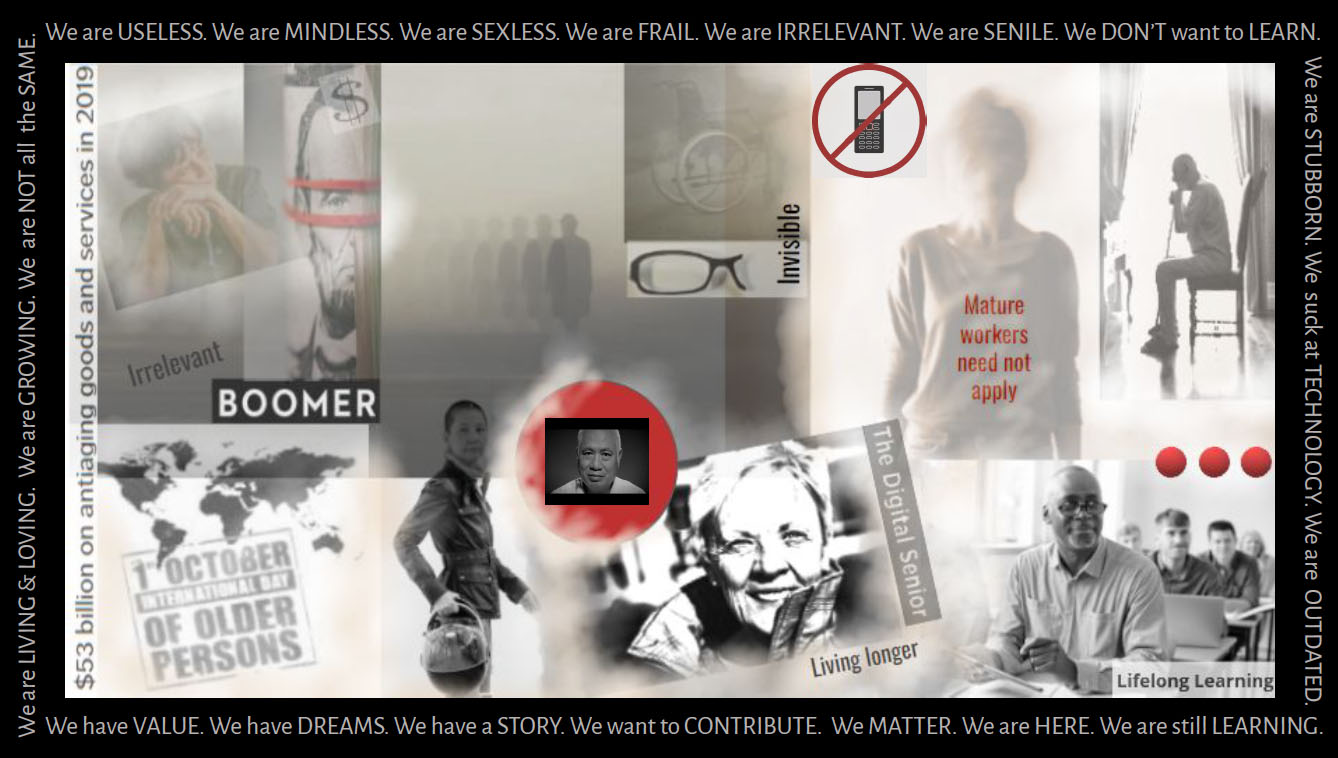2 Ageism

By Janice McCabe
All I heard was, “older people are stubborn; older people don’t want to learn; older people don’t want to change; older people need to unlearn.” I was taken aback by her stereotypical language and felt judged. In fairness, she could not see that I was one of “those people” as my webcam was off during our meeting. I responded by talking about the dangers of generational labelling and then moved on. But the interchange got me thinking. “Was she right?” I could certainly think of some older adults who fit that bill, but many more looked nothing like what she described.
According to a World Health Organization [WHO] report, “ageism is prevalent, deeply ingrained and more socially accepted than other forms of bias” (2021a, p. 20). It states that one in two people globally has ageist attitudes manifested in policies, societal norms, and perceptions which cause exclusion. It calls out ageism as a human rights issue. Addressing ageism through education is essential as our global population is aging. The upcoming “grey tsunami” will see people 60+ double by 2050 and people 80+ triple between 2020-2050 (WHO, 2022). Living longer means considering options, including returning to school for various reasons, like Jules Means, in the week two PBS Video (Cerre, 2021).
This assignment pushed me to dig deeper by reflecting on my experience with ageism and course content. In this collage, I have used various images to explore aging stereotypes, the notion of invisibility (especially pronounced in our youth-obsessed culture), and the idea of individuality. To combat ageism, we must move past seeing all older people as having the same tired, stereotypical traits and behaviours because we are not all the same – a message the embedded WHO video (2019b) reinforces.
References
Cerre, M. (2021, May 22). Older adults are heading to college in pursuit of new opportunities. [Video] PBS News Weekend.
https://www.pbs.org/newshour/show/older-adults-areheading-To-college-in-pursuit-of-new-opportunities
World Health Organization. (2022, October 1). Aging and health: Key facts. World Health Organization Newsroom. WHO. https://www.who.int/news-room/fact-sheets/detail/ageing-and-health
World Health Organization. (2021a). Global campaign to combat ageism. In Global report on AGEISM. WHO. https://www.who.int/publications/i/item/9789240016866
World Health Organization. (2021b, March 19). Age doesn’t define you – Global campaign to combat ageism. [Video]. YouTube. https://www.youtube.com/watch?v=5vIrL7fiNgw

